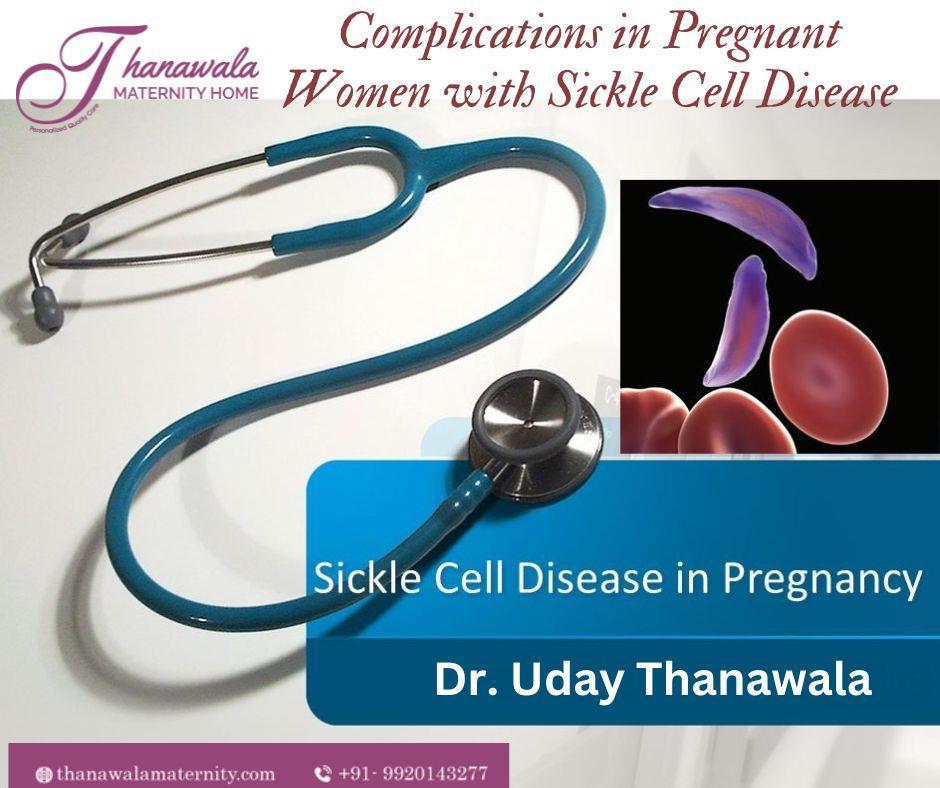Complications in Pregnant Women with Sickle Cell Disease

Sickle cell disease or sickle cell anemia is a genetic disorder that is inherited from parents. It can’t be transmitted or caused by

anyexternalfactors.However,itputsyouata higher risk of infections and a complicated pregnancy. Pregnancyinwomenwithsicklecelldiseaseis complicatedandcomparativelymoredifficult to manage than a normal pregnancy. But it’s possible. Consult a gynecologist in Navi Mumbai tolearnmoreaboutsickcellanemia andhowitaffectsyourfertility.
What Happens in Sick Cell Anemia?
Anormalbloodcellisround-shaped,withthe entirecellcomposedof hemoglobin A, which carries oxygen to your tissues. People with sickle cell mutation have a combination of hemoglobinAandSintheirbloodcells,which makes them slightly curved. As a result, they develop c-shaped red blood cells, hence the name.
If you have inherited the gene from one parent, your blood will be composed of hemoglobin A and S. However, if you got the mutationfromeachparent,yourbloodwillbe mostly composed of hemoglobin S, which increases your risk of complications during pregnancy. Thecurvedredbloodcellsgrouptogetherand blockthebloodflowtothetissues.Asaresult, your tissues and the vital organs do not get sufficient oxygen, and ischemia—a condition where your baby doesn’t get enough oxygen to grow. This can cause a sickle cell crisis, which causes extreme joint pain. There is an increased risk of kidney diseases and heart strokesinpeoplewithsicklecelldisease.
Pregnancy Complications in Women with Sickle Cell Disease
Pregnant women are likely to experience anemia and painful pregnancy. A sickle cell crisiscancausealotofpaininyourjoints.The paincanrangefromdulltothrobbing,causing extreme inconvenience. The pain can last from a few hours to days, and the degree mightvaryfrompersontoperson.Youshould head to a maternity hospital in Navi Mumbai and get prescription drugs to deal withthesymptoms.
Moreover, pregnant women are at a higher riskofdevelopingotherhealthproblems,such as infection and vision issues, at later stages. There’s also a risk of pre-term birth, a miscarriage,andababyweighinglessthanthe average newborn. These complications are causedbythelackofoxygenandbloodsupply tothefetus.
Is There Any Treatment?
You might need a blood transfusion at some point in your pregnancy (more than once, sometimes).Pregnantwomenwithsicklecell disease may have to schedule regular appointments with their gynecologists. Routine blood tests will help your doctor identifypotentialissuesaheadoftime. It’simportanttomeetthedoctortwiceaweek in your third trimester. If you have been taking medication for sickle cell disease, ask yourdoctoriftheyaresafeduringpregnancy. Your doctor might prescribe aspirin (lowdose) to help you cope with the painful episodes and reduce the risk of blood clots, which are common in people with sickle cell anemia.
